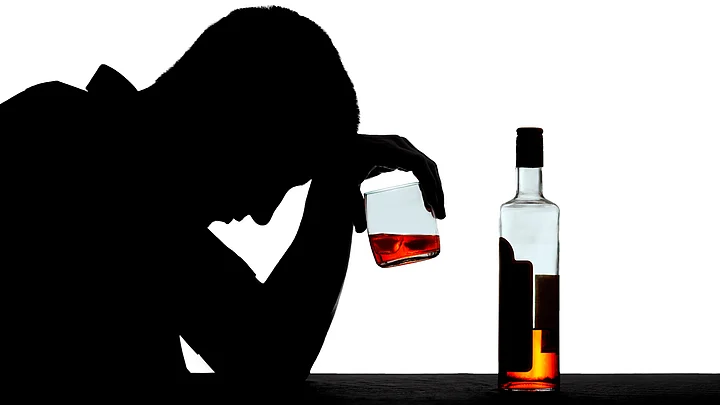It has been a little under a month since total prohibition was clamped in Bihar. Initial reports suggest that the enforcement has been strict and compliance satisfactory. The issue is once again gaining traction as Tamil Nadu’s incumbent Chief Minister J Jayalalithaa has promised to reintroduce prohibition in the state if voted back to power.
The standard arguments for and against
prohibition have been well rehearsed. I will mention them briefly and move on
to a point barely raised.
First there is the question of feasibility in terms of both finances and enforcement. In most states, excise levies on alcohol constitute the single largest head of revenue; at the very least they are a very important source of income for state governments. In the past, states that have imposed prohibition have withdrawn orders fairly expeditiously.
Then again, enforcement is always a problem. Prohibition usually encourages smuggling and the business of producing illicit liquor. This, in turn, has the acute potential of taking lives.
Ill Effects of Alcoholism
Then there is the issue of infringement of individual rights. Or does the state have the right to prevent people drinking, especially since studies suggest that around half the number of people in India who drink can be classified as problem drinkers? The justification for prohibition would have to be the protection of those who have a drinking problem and those who are victims of people who have a drinking problem.
Typically, the above argument is made in the case of poorer sections – those addicted to alcohol spend a disproportionate amount of their already inadequate incomes on alcohol, depriving their families of the necessities of life, namely adequate nutrition, health care, shelter and education. To make matters worse, excessive alcohol consumption propels the alcoholic (usually the male breadwinner) to commit domestic violence – against his wife and children.
Banning is not the Solution
- Banning alcohol
raises the question whether the state has the right to prevent people from drinking.
- Those arguing in favour of a ban cite the example of poorer sections who are among one of the worst victims of alcoholism.
- Medical science
has established that alcoholism is indeed a disease and can only be managed.
- The state must educate
alcoholics and curb this social
evil through ‘outreach’ programmes.
Is Alcoholism a Disease?
All of this is generally true. But all of this also ignores the established fact that an alcoholic is as much a “victim”. Mental health professionals – psychiatrists, therapists, counsellors – have been saying for several decades that alcoholism is a disease, not unlike, say, diabetes.
Medical research into the condition is ongoing and the understanding is still preliminary. But medical science has established that alcoholism is indeed a disease or illness, which some hold is incurable like diabetes. It can only be managed.
What this essentially means is that alcoholics drink, usually or most often, to excess not necessarily because they want to but because their medical condition compels them to. Excessive drinking is a symptom of addiction; a matter of compulsion rather than choice. It follows, therefore, that alcoholics (or dependent drinkers, or whatever name one chooses) cannot deal with their condition or problem without help. It is widely assumed, completely erroneously, that excessive drinking is a form of self-indulgence that can be “cured” by the simple remedy of exercising self-control – which is far from the truth.
Prohibition, if it is conceived as being a strategy to deal with a “social evil”, as opposed to, say, being the forceful imposition of a particular moral code on citizens, irrespective of how many of them subscribe to it, is completely wrong-headed. A ban on drinking is an attempt to manage the “problem” at the two ends of supply and demand. But as a demand-management strategy it is bound to fail, especially as far as the main targets – dependent drinkers – are concerned. In that it is like the multi-million dollar “war on drugs” that the USA and other western countries have been fighting, and losing, for decades.
Prohibition is Not the Solution
Prohibition is not going to stall an alcoholic’s craving for alcohol. It will only force him or her to seek it in clandestine ways. The rich will have their choice of tipple delivered to their doorsteps, while the poor will find it in less salubrious settings. The way to deal with the “social evil” of alcoholism is therefore, outreach. The state must itself educate alcoholics – tell them that their drinking is the symptom of a medical condition – and create the necessary infrastructure for rehabilitation, medication and therapy, if it is serious about dealing with the problem.
While this will be necessary whether or not prohibition is imposed, it is especially incumbent on a government that bans drinking, because prohibition wedges addicted people between two compulsions – the craving for alcohol and the state’s attempt to prevent them from satisfying it.
(The writer is a Kolkata-based freelance journalist and researcher.)
Also Read:
Booze Ban in Bihar: CCTV Cameras to Help Officials Nab Drunkards
Here’s Why Nitish Kumar, the Teetotaler, is in ‘High Spirits’
(At The Quint, we question everything. Play an active role in shaping our journalism by becoming a member today.)
